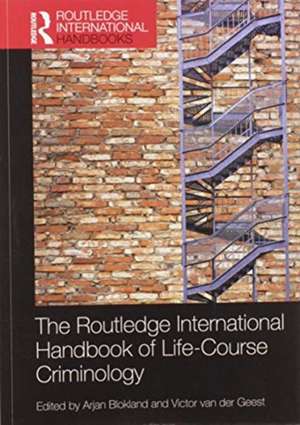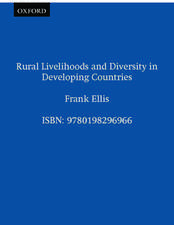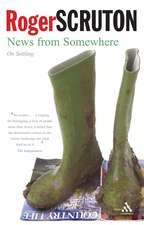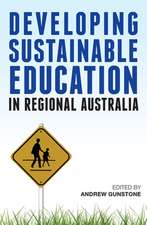The Routledge International Handbook of Life-Course Criminology: Routledge International Handbooks
Editat de Arjan Blokland, Victor van der Geesten Limba Engleză Paperback – 30 iun 2020
The Routledge International Handbook of Life-Course Criminology provides an authoritative collection of international theoretical and empirical research into the way that criminal behavior develops over the life-span, which causal mechanisms are involved in shaping this development, and to what degree criminal justice interventions are successful in redirecting offenders’ criminal trajectories. Drawing upon qualitative and quantitative research this handbook covers theory, describes and compares criminal career patterns across different countries, tests current explanations of criminal development, and using cutting-edge methods, assesses the intended and unintended effects of formal interventions.
This book is the first of its kind to offer a comprehensive overview of state-of-the-art developments in criminal career and life-course research, providing unique perspectives and exclusive local knowledge from over 50 international scholars. This book is an ideal companion for teachers and researchers engaged in the field of developmental and life-course criminology.
| Toate formatele și edițiile | Preț | Express |
|---|---|---|
| Paperback (1) | 430.70 lei 6-8 săpt. | |
| Taylor & Francis – 30 iun 2020 | 430.70 lei 6-8 săpt. | |
| Hardback (1) | 1359.24 lei 6-8 săpt. | |
| Taylor & Francis – 6 mar 2017 | 1359.24 lei 6-8 săpt. |
Din seria Routledge International Handbooks
-
 Preț: 371.78 lei
Preț: 371.78 lei -
 Preț: 375.50 lei
Preț: 375.50 lei -
 Preț: 362.20 lei
Preț: 362.20 lei -
 Preț: 352.09 lei
Preț: 352.09 lei - 9%
 Preț: 1487.73 lei
Preț: 1487.73 lei - 5%
 Preț: 317.32 lei
Preț: 317.32 lei -
 Preț: 372.05 lei
Preț: 372.05 lei -
 Preț: 361.20 lei
Preț: 361.20 lei -
 Preț: 390.14 lei
Preț: 390.14 lei -
 Preț: 311.91 lei
Preț: 311.91 lei - 9%
 Preț: 1488.70 lei
Preț: 1488.70 lei -
 Preț: 390.23 lei
Preț: 390.23 lei -
 Preț: 347.75 lei
Preț: 347.75 lei -
 Preț: 347.75 lei
Preț: 347.75 lei - 9%
 Preț: 1490.13 lei
Preț: 1490.13 lei -
 Preț: 356.23 lei
Preț: 356.23 lei -
 Preț: 348.29 lei
Preț: 348.29 lei - 5%
 Preț: 328.13 lei
Preț: 328.13 lei -
 Preț: 394.25 lei
Preț: 394.25 lei - 8%
 Preț: 392.90 lei
Preț: 392.90 lei - 8%
 Preț: 422.42 lei
Preț: 422.42 lei -
 Preț: 357.23 lei
Preț: 357.23 lei - 8%
 Preț: 421.97 lei
Preț: 421.97 lei - 5%
 Preț: 452.17 lei
Preț: 452.17 lei - 9%
 Preț: 1665.72 lei
Preț: 1665.72 lei - 9%
 Preț: 1651.64 lei
Preț: 1651.64 lei -
 Preț: 350.21 lei
Preț: 350.21 lei -
 Preț: 381.91 lei
Preț: 381.91 lei -
 Preț: 345.64 lei
Preț: 345.64 lei -
 Preț: 347.75 lei
Preț: 347.75 lei - 20%
 Preț: 1401.04 lei
Preț: 1401.04 lei -
 Preț: 342.77 lei
Preț: 342.77 lei -
 Preț: 346.78 lei
Preț: 346.78 lei -
 Preț: 345.17 lei
Preț: 345.17 lei -
 Preț: 353.89 lei
Preț: 353.89 lei -
 Preț: 1058.63 lei
Preț: 1058.63 lei -
 Preț: 348.06 lei
Preț: 348.06 lei - 5%
 Preț: 337.34 lei
Preț: 337.34 lei -
 Preț: 365.90 lei
Preț: 365.90 lei - 9%
 Preț: 1528.89 lei
Preț: 1528.89 lei -
 Preț: 346.12 lei
Preț: 346.12 lei -
 Preț: 392.49 lei
Preț: 392.49 lei - 9%
 Preț: 1454.53 lei
Preț: 1454.53 lei - 9%
 Preț: 1492.85 lei
Preț: 1492.85 lei - 5%
 Preț: 326.87 lei
Preț: 326.87 lei -
 Preț: 361.75 lei
Preț: 361.75 lei - 9%
 Preț: 1349.84 lei
Preț: 1349.84 lei - 19%
 Preț: 422.81 lei
Preț: 422.81 lei - 8%
 Preț: 385.56 lei
Preț: 385.56 lei
Preț: 430.70 lei
Nou
Puncte Express: 646
Preț estimativ în valută:
82.43€ • 85.73$ • 68.05£
82.43€ • 85.73$ • 68.05£
Carte tipărită la comandă
Livrare economică 14-28 aprilie
Preluare comenzi: 021 569.72.76
Specificații
ISBN-13: 9780367581336
ISBN-10: 0367581337
Pagini: 496
Dimensiuni: 174 x 246 x 25 mm
Greutate: 0.79 kg
Ediția:1
Editura: Taylor & Francis
Colecția Routledge
Seria Routledge International Handbooks
Locul publicării:Oxford, United Kingdom
ISBN-10: 0367581337
Pagini: 496
Dimensiuni: 174 x 246 x 25 mm
Greutate: 0.79 kg
Ediția:1
Editura: Taylor & Francis
Colecția Routledge
Seria Routledge International Handbooks
Locul publicării:Oxford, United Kingdom
Public țintă
Postgraduate and UndergraduateNotă biografică
Arjan Blokland is Professor of Criminology and Criminal Justice at the Institute for Criminal Law and Criminology at Leiden University, and Senior Researcher at the Netherlands Institute for the Study of Crime and Law Enforcement (NSCR), Amsterdam.
Victor van der Geest is a development psychologist and Assistant Professor at VU University, Amsterdam.
Recenzii
"This collection of works from the leading national and international scholars on life-course criminology is a wonderful gift to the field. Written in an accessible, yet authoritative manner, chapters touch on all matters from theory to data to policy. And it is choc-full of key research questions that will mark the landscape for years to come. I’ve learned so much already and I am sure that it will continue to be the gift that will keep on giving in the future."
Alex R. Piquero, Ashbel Smith Professor of Criminology, University of Texas at Dallas, USA
Alex R. Piquero, Ashbel Smith Professor of Criminology, University of Texas at Dallas, USA
Descriere
This book provides an authoritative collection of international research into the way criminal behavior develops over the life span, which causal mechanisms are involved in shaping this development, and to what degree criminal justice interventions are successful in redirecting offenders’ criminal trajectories.
Cuprins
1. Taking stock of life-course criminology (Arjan Blokland and Victor van der Geest)
Part I: Theory
2. The Integrated Cognitive Antisocial Potential (ICAP) Theory: Empirical Testing (David P. Farrington and Tara Renae McGee)
3. Human Agency: The Missing Element in Theories of Desistance (Raymond Paternoster and Ronet Bachman)
4. A Relational Perspective on Agency and the Desistance Process: A Reaction to Paternoster and Bachman (Peggy Giordano)
5. Situational Action Theory and PADS+: Theoretical and Methodological Advances in the Study of Life Course Criminology (Kyle Treiber)
6. Religion, Spirituality, and Desistance from Crime: Toward a Theory of Existential Identity Transformation (Sung Joon Jang and Byron R. Johnson)
Part II: Criminal Careers
7. Changing crime-mix patterns of offending over the life course: A comparative study in England and Wales and the Netherlands (Amy Elliott, Brian Francis, Keith Soothill and Arjan Blokland)
8. Crime specialization as a dynamic process? Criminal careers, crime mix and crime specialization in chronic, serious and violent offenders (Patrick Lussier, Evan McCuish, Nadine Deslauriers-Varin and Raymond R. Corrado)
9. Comparing criminal careers across three national cohorts: Finland, Denmark and The Netherlands (Henrik Elonheimo, Signe Frederiksen, Wim Bernasco and Arjan Blokland)
Part III: Onset and Continuation
10. Exploration and explanation of adolescent self-reported delinquency trajectories in the Crimoc study (Daniel Seddig and Jost Reinecke)
11. Social and individual antecedents of adolescent-onset conduct problem behaviour (Tina Kretschmer, Jan Kornelis Dijkstra and René Veenstra)
12. Trying to Make It Work: Change within Continuity in Offending during Early Adulthood (Sarah Boonstoppel)
13. Risk Factors and Adulthood Adjustment Outcomes for Different Pathways of Crime: Key Findings from the Swedish IDA Program (Jelena Corovic, Anna-Karin Andershed, Olivier F. Colins, and Henrik Andershed)
Part IV: Offending over the Life-Course
14. Changes in offending around official labor market entry: Vulnerable youths in transition to adulthood (Victor van der Geest, Torbjørn Skardhamar and Janna Verbruggen)
15. To See the Fear in Their Eyes; Poses of Violence in Biography (Frank van Gemert)
16. Intergenerational Transmission of Crime: An International, Empirical Assessment (Steve van de Weijer, Sytske Besemer and Megan Augustyn)
Part V: Desistance from Offending
17. Offending and Offence Patterns in the Early Stages of Desistance: A Study of Young Men in England (Joanna Shapland and Anthony Bottoms)
18. The Transition to Adulthood and the Ambivalence of Desistance (Christoffer Carlsson)
19. Substance Abuse, Crime and the Life Course (Olof Bäckman, Felipe Estrada and Anders Nilsson)
20. Expanding Our Understanding of Women’s Risk of Re-incarceration (Elanie Rodermond, Candace Kruttschnitt, Anne-Marie Slotboom and Catrien Bijleveld)
Part VI: Official Interventions
21. The past and future labour market careers of Dutch prisoners (Anke Ramakers, Paul Nieuwbeerta, Johan van Wilsem, Robert Apel and Anja Dirkzwager)
22. The impact of imprisonment on IPV offenders’ risks of recidivism: An application of two natural experiments in the city of Barcelona (Jorge Rodríguez-Menés and Mathew Creighton)
23. ‘Virtual’ versus ‘real’ prison: which is best? Comparing the re-incarceration rates after electronic monitoring and imprisonment in Belgium (Luc Robert, Eric Maes, Arjan Blokland and Hilde Wermink)
24. The Long-Term Impacts of Probation Supervision (Ben Hunter, Stephen Farrall, Gilly Sharpe and Adam Calverley)
25. Intergenerational continuity in incarceration: Evidence from a Dutch multi-generation cohort (Susan Dennison, Catrien Bijleveld, and Steve van de Weijer)
Part I: Theory
2. The Integrated Cognitive Antisocial Potential (ICAP) Theory: Empirical Testing (David P. Farrington and Tara Renae McGee)
3. Human Agency: The Missing Element in Theories of Desistance (Raymond Paternoster and Ronet Bachman)
4. A Relational Perspective on Agency and the Desistance Process: A Reaction to Paternoster and Bachman (Peggy Giordano)
5. Situational Action Theory and PADS+: Theoretical and Methodological Advances in the Study of Life Course Criminology (Kyle Treiber)
6. Religion, Spirituality, and Desistance from Crime: Toward a Theory of Existential Identity Transformation (Sung Joon Jang and Byron R. Johnson)
Part II: Criminal Careers
7. Changing crime-mix patterns of offending over the life course: A comparative study in England and Wales and the Netherlands (Amy Elliott, Brian Francis, Keith Soothill and Arjan Blokland)
8. Crime specialization as a dynamic process? Criminal careers, crime mix and crime specialization in chronic, serious and violent offenders (Patrick Lussier, Evan McCuish, Nadine Deslauriers-Varin and Raymond R. Corrado)
9. Comparing criminal careers across three national cohorts: Finland, Denmark and The Netherlands (Henrik Elonheimo, Signe Frederiksen, Wim Bernasco and Arjan Blokland)
Part III: Onset and Continuation
10. Exploration and explanation of adolescent self-reported delinquency trajectories in the Crimoc study (Daniel Seddig and Jost Reinecke)
11. Social and individual antecedents of adolescent-onset conduct problem behaviour (Tina Kretschmer, Jan Kornelis Dijkstra and René Veenstra)
12. Trying to Make It Work: Change within Continuity in Offending during Early Adulthood (Sarah Boonstoppel)
13. Risk Factors and Adulthood Adjustment Outcomes for Different Pathways of Crime: Key Findings from the Swedish IDA Program (Jelena Corovic, Anna-Karin Andershed, Olivier F. Colins, and Henrik Andershed)
Part IV: Offending over the Life-Course
14. Changes in offending around official labor market entry: Vulnerable youths in transition to adulthood (Victor van der Geest, Torbjørn Skardhamar and Janna Verbruggen)
15. To See the Fear in Their Eyes; Poses of Violence in Biography (Frank van Gemert)
16. Intergenerational Transmission of Crime: An International, Empirical Assessment (Steve van de Weijer, Sytske Besemer and Megan Augustyn)
Part V: Desistance from Offending
17. Offending and Offence Patterns in the Early Stages of Desistance: A Study of Young Men in England (Joanna Shapland and Anthony Bottoms)
18. The Transition to Adulthood and the Ambivalence of Desistance (Christoffer Carlsson)
19. Substance Abuse, Crime and the Life Course (Olof Bäckman, Felipe Estrada and Anders Nilsson)
20. Expanding Our Understanding of Women’s Risk of Re-incarceration (Elanie Rodermond, Candace Kruttschnitt, Anne-Marie Slotboom and Catrien Bijleveld)
Part VI: Official Interventions
21. The past and future labour market careers of Dutch prisoners (Anke Ramakers, Paul Nieuwbeerta, Johan van Wilsem, Robert Apel and Anja Dirkzwager)
22. The impact of imprisonment on IPV offenders’ risks of recidivism: An application of two natural experiments in the city of Barcelona (Jorge Rodríguez-Menés and Mathew Creighton)
23. ‘Virtual’ versus ‘real’ prison: which is best? Comparing the re-incarceration rates after electronic monitoring and imprisonment in Belgium (Luc Robert, Eric Maes, Arjan Blokland and Hilde Wermink)
24. The Long-Term Impacts of Probation Supervision (Ben Hunter, Stephen Farrall, Gilly Sharpe and Adam Calverley)
25. Intergenerational continuity in incarceration: Evidence from a Dutch multi-generation cohort (Susan Dennison, Catrien Bijleveld, and Steve van de Weijer)












